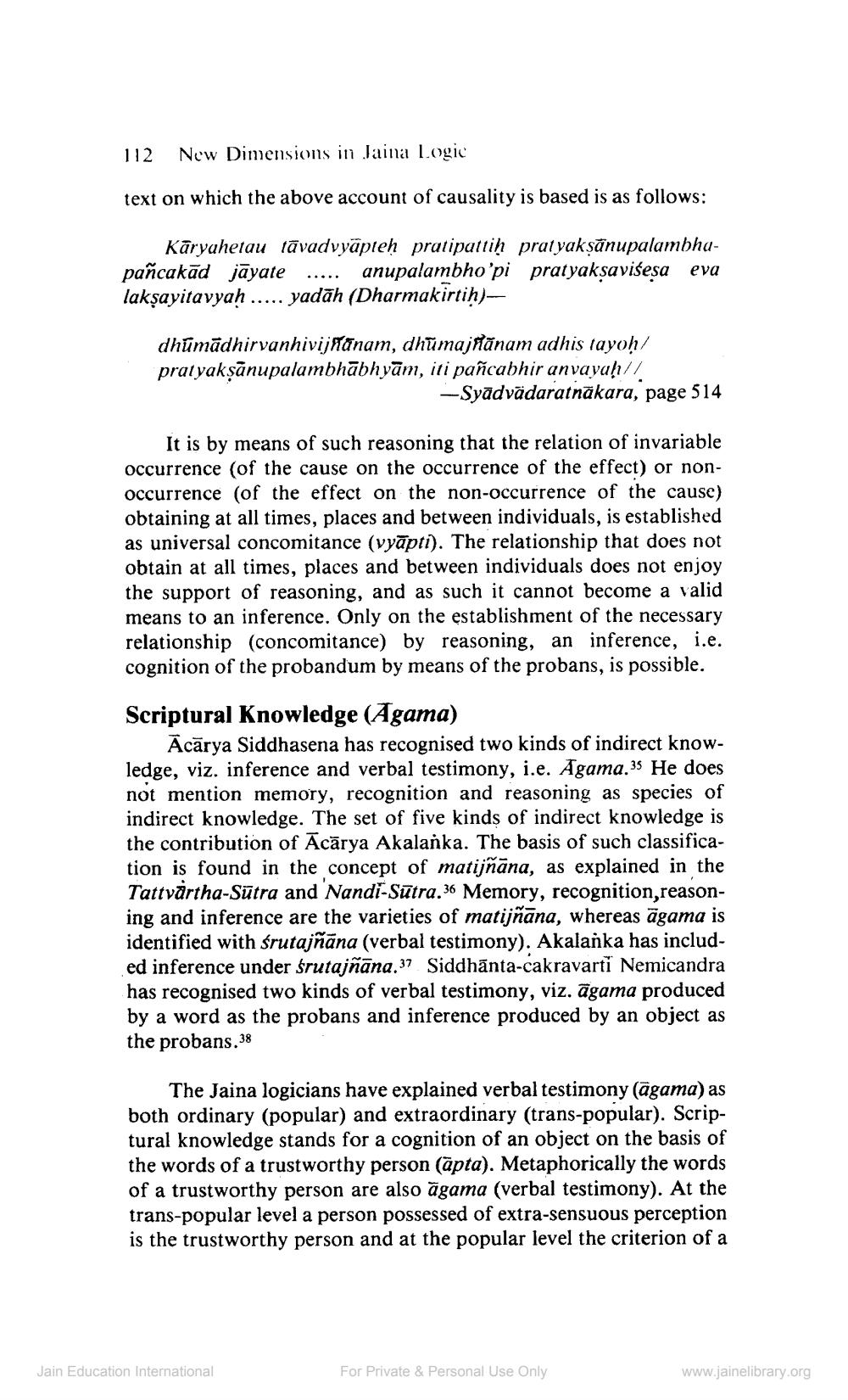________________
New Dimensions in Jaina Logic
text on which the above account of causality is based is as follows:
112
Karyahetau tavadvyäpteḥ pratipattiḥ pratyakṣānupalambhapañcakad jāyate anupalambho'pi pratyakṣaviseṣa eva lakṣayitavyaḥ yadah (Dharmakirtiḥ)—
dhūmādhirvanhivijñānam, dhūmajñānam adhis tayoḥ/ pratyakṣanupalambhābhyām, iti pañcabhir anvayaḥ// -Syādvädaratnākara, page 514
It is by means of such reasoning that the relation of invariable occurrence (of the cause on the occurrence of the effect) or nonoccurrence (of the effect on the non-occurrence of the cause) obtaining at all times, places and between individuals, is established as universal concomitance (vyāpti). The relationship that does not obtain at all times, places and between individuals does not enjoy the support of reasoning, and as such it cannot become a valid means to an inference. Only on the establishment of the necessary relationship (concomitance) by reasoning, an inference, i.e. cognition of the probandum by means of the probans, is possible.
Scriptural Knowledge (Agama)
Acarya Siddhasena has recognised two kinds of indirect knowledge, viz. inference and verbal testimony, i.e. Agama.35 He does not mention memory, recognition and reasoning as species of indirect knowledge. The set of five kinds of indirect knowledge is the contribution of Acārya Akalanka. The basis of such classification is found in the concept of matijñāna, as explained in the Tattvärtha-Sutra and Nandi-Sūtra. 36 Memory, recognition, reasoning and inference are the varieties of matijñāna, whereas agama is identified with śrutajñāna (verbal testimony). Akalanka has included inference under śrutajñāna.37 Siddhanta-cakravarti Nemicandra has recognised two kinds of verbal testimony, viz. āgama produced by a word as the probans and inference produced by an object as the probans.38
The Jaina logicians have explained verbal testimony (@gama) as both ordinary (popular) and extraordinary (trans-popular). Scriptural knowledge stands for a cognition of an object on the basis of the words of a trustworthy person (apta). Metaphorically the words of a trustworthy person are also agama (verbal testimony). At the trans-popular level a person possessed of extra-sensuous perception is the trustworthy person and at the popular level the criterion of a
Jain Education International
For Private & Personal Use Only
www.jainelibrary.org




